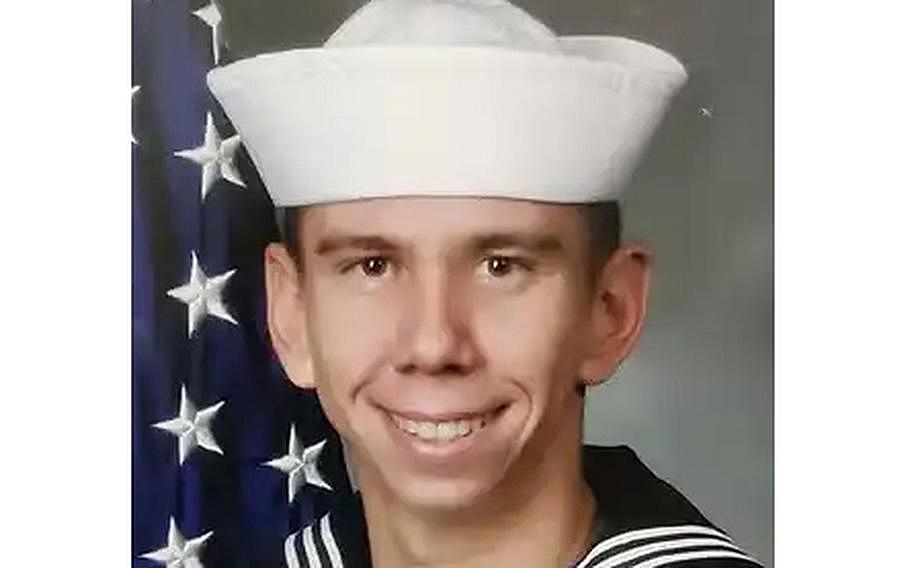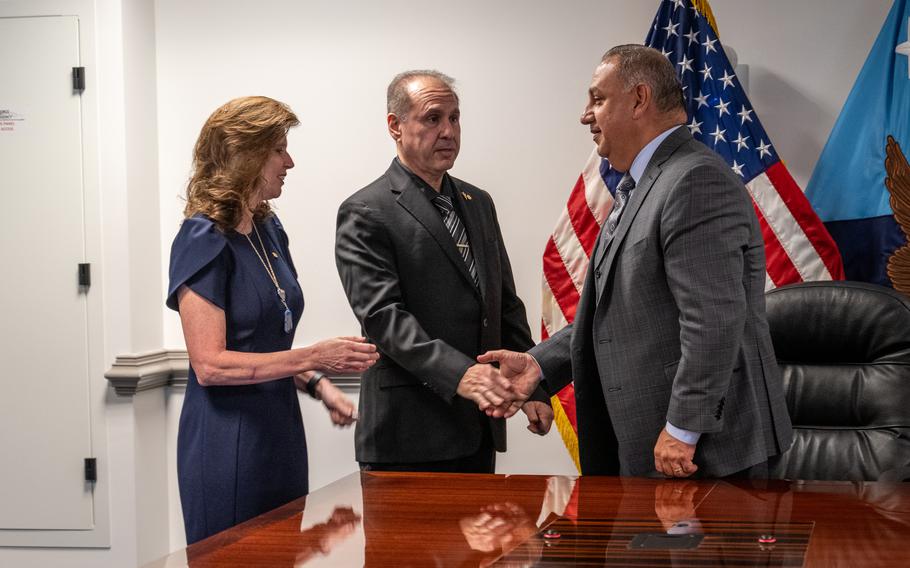
Petty Officer 3rd Class Brandon Caserta, 21, died by suicide June 25, 2018, at Naval Station Norfolk, Va. The Air Force adopted a new policy that allows service members to request a confidential, expedited referral for mental health support through a commanding officer or supervisor. The policy change is mandated by a federal law named for Caserta. (Defense Department)
The Air Force is the latest service to implement a new congressionally mandated policy that allows members of the military to request a confidential, expedited referral for mental health support through a commanding officer or supervisor.
Intended to make it easier for military personnel to seek help by reducing stigma and prioritizing mental health care, the policy stems from federal legislation known as the Brandon Act.
It was named for Petty Officer 3rd Class Brandon Caserta, an aviation electrician who died by suicide June 25, 2018, on the flight line at Naval Station Norfolk, Va.
A command investigation found that abusive and toxic leadership in his helicopter squadron contributed to his suicide. His parents, Patrick and Teri Caserta, subsequently pushed Congress for legislation to expand mental health services for military personnel.
The services have been slow to roll out their respective policies despite a deadline set by the Pentagon.
In early May, the Defense Department officially implemented its policy, directing the services to establish the guidance for its active-duty force within 45 days. The Navy implemented the new policy for itself and the Marine Corps on July 10.
Secretary of the Air Force Frank Kendall signed the measure for airmen and guardians on July 28. The memo first was shared on the unofficial Air Force amn/nco/snco Facebook page. The Army has not announced an implementation date for its policy.

Pentagon official Gilbert Cisneros, right, shakes hands with Patrick and Teri Caserta, parents of Brandon Caserta, on May 5, 2023. Brandon Caserta’s suicide prompted his parents to seek congressional legislation making it easier for service members to seek mental health services. (Jack Sanders/U.S. Air Force)
Kendall called the Casertas last week, the parents said on their “The Brandon Act” Facebook page on Friday.
“He was very sympathetic and understood why The Brandon Act was created and why we fought so hard to get it implemented,” they wrote.
The new Air Force policy allows airmen or guardians to seek a referral for a mental health evaluation from a commander or supervisor with the rank of E-6 or above “on any basis, at any time, and in any environment,” according to the Air Force guidance signed by Kendall.
Among the allowable reasons are personal distress or concerns and “trouble performing duties and functioning in activities” that could be attributed to mental health reasons, the Air Force policy says.
Commanders and supervisors in turn are directed to refer a service member seeking help for an evaluation as soon as practical and protect their privacy as much as possible.
Leadership won’t be notified of the evaluation’s results unless there is a safety, readiness or duty concern.
Airmen and guardians still may request a mental health referral through their military provider or an off-base treatment facility without going through their leadership.
The new guidance also applies to guardsmen and reservists with orders of more than 30 days. A second phase for guardsmen and reservists on orders of 30 days or fewer will be introduced later, the Air Force memo said.
The Pentagon also is required to annually train personnel in recognizing signs that service members may need a mental health evaluation.
The shortage of mental health providers across the military, where at some bases appointments may take months to get, could provide a barrier to expediting evaluations for personnel.
When Chief Master Sergeant of the Air Force JoAnne Bass announced the Air Force policy Sunday on her official Facebook page, one person asked how the Air Force will address manning for mental health.
“There isn’t one single program, solution or change that will fix the challenges we face when it comes to mental health,” Bass replied, adding that she is encouraged by the latest changes to improve access to care.
Since President Joe Biden signed the Brandon Act into law in December 2021, the number of suicides among active-duty personnel increased from 75 in the first quarter of 2022 to 94 in the first three months of 2023, according to military data.

The Air Force is the latest service to implement a new policy for access to mental health services as mandated by a federal law known as the Brandon Act. (Defense Department)